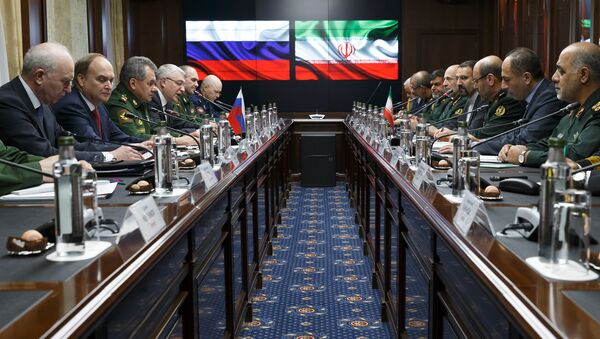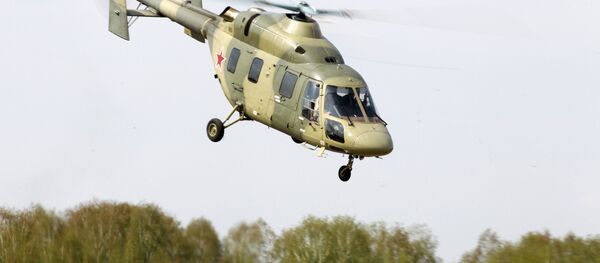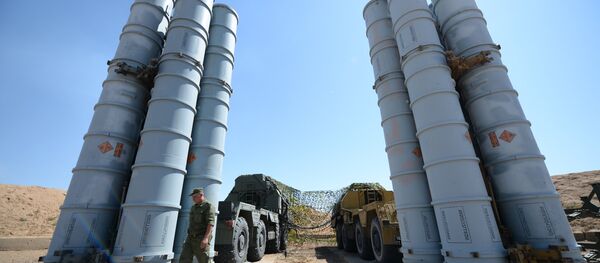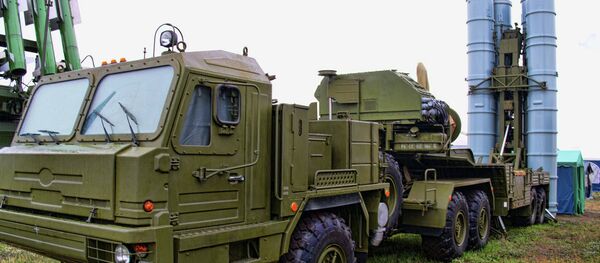The visit comes a few months after the implementation of a contract on the supply of Russian S-300 missile defense systems to Iran, a document which Tehran said laid a solid foundation for the development of new areas of weapons development cooperation between the two countries.
In an interview with Sputnik Persian, Iranian political analyst Shoeib Bahman remained optimistic about the future of the Russian-Iranian military collaboration.
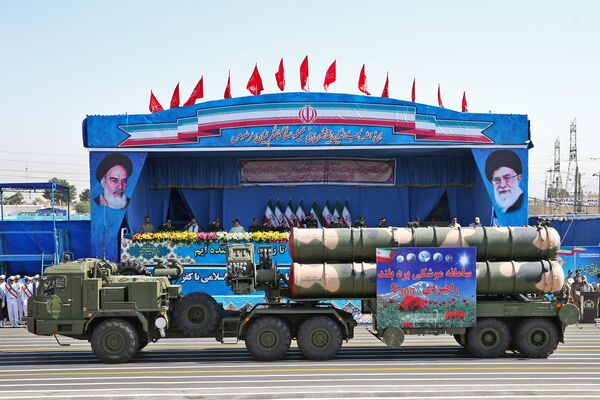
"Currently, both countries are poised to expand partnership in this area, with Iran ready to purchase other kinds of weapons [from Russia] for its Navy and Air Force. The military and technical cooperation between Tehran and Moscow is not only limited to the supply of the S-300 missile system," Bahman said.
He recalled that in the past couple of months, the two countries have held talks to discuss the supply of Russian fighter jets and light armament to Iran.
The topic is expected to be further discussed during the upcoming inter-parliamentary meeting in Iran, according to Bahman.
In this vein, Bahman said that it will be necessary to render "staff support to Iranian specialists during the integration of Russian arms and transfer of their technology."
"Also, the past several years have seen the intensification of military cooperation between Iran and Russia on Syria," he said, also referring to anti-terrorist drills between the two countries.
"So the level of military collaboration between Iran and Russia is not limited to the agreements on arms supplies," Bahman concluded.
The $900-million contract to deliver five Russian S-300 systems to Iran was signed in 2007. It was suspended after the adoption of UN Security Council sanctions against Iran in mid-2010.
RIA: Russia completed the delivery of anti-aircraft missile systems S-300 to Iran https://t.co/LTlguZXo4v pic.twitter.com/tmTurPJi6Q
— Russian Exercises (@RUSexercises) 13 декабря 2016 г.
In April 2015, Russia resumed the talks on the S-300 deliveries following an interim agreement on the Iranian nuclear program.
Tehran announced a year later that Russia had delivered its first consignment of S-300 missiles as scheduled.
Last week, the Russian Foreign Ministry announced that Russian Foreign Minister Sergey Lavrov and his Iranian counterpart Mohammad Javad Zarif had agreed that the intra-Syrian talks in Astana were an effective platform for the resolution of the Syrian conflict, pledging to maintain efforts to closely coordinate their efforts to resolve the conflict.
As a result of the talks, Russia, Iran and Turkey agreed to establish a trilateral mechanism to monitor the ceasefire that came into effect on December 30, 2016.
Never miss a story again — sign up to our Telegram channel and we'll keep you up to speed!

